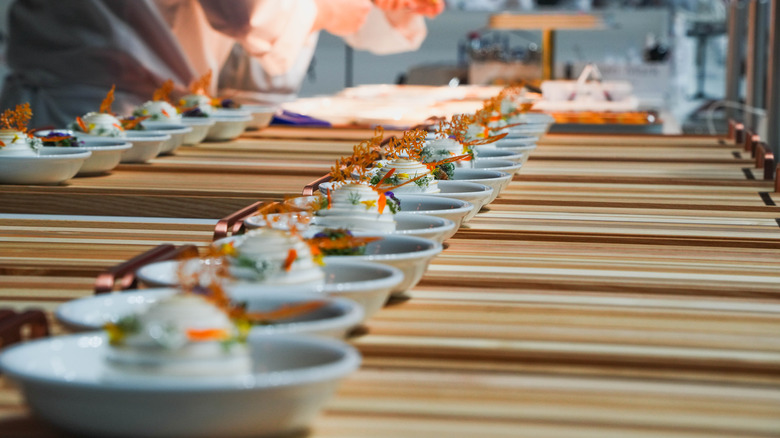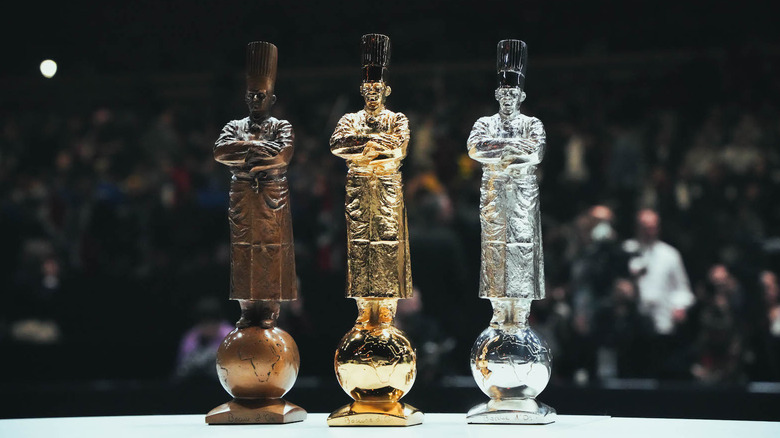What It Takes To Compete In The World-Renowned Bocuse d'Or
Widely acknowledged as the culinary equivalent of the Olympic Games, Bocuse d'Or is no run-of-the-mill cooking competition. Pre-qualified teams from around the world rigorously train for more than a year before they even set foot in the arena. When it's time to step onto the field, or in this case into the kitchen, uniformed teams enter an arena adorned with flags to represent each competitor's home country. A panel of judges watches their every move while adoring fans cheer them on to victory. When the winning teams are announced, representatives take their places on a three-tiered winners' podium — bronze, silver, and gold — while their national anthems play over the stadium's sound system.
Michelin, the highly regarded star-rating system for restaurants, may be better known, but winning Bocuse d'Or is an honor reserved for only the most talented and creative chefs worldwide — and it's a feat that requires nerves of steel. Only one U.S. team has ever taken home Bocuse d'Or gold. It happened during the international competition's 30th anniversary in 2017 when head chef Mathew Peters led Team USA to victory. Peters and his commis (competition speak for sous chef), Harrison Turone, prepared for more than a year before the showdown. In addition to planning, honing, and repeatedly testing their entries, the pair began every day with a 6 a.m. workout, followed by hours of training in a purpose-built test kitchen. They even blared loud music to simulate the welcome-but-disruptive cheering they knew they'd encounter during the competition.
Bring home the gold
The 2017 team's training schedule was a far cry from the way U.S. teams prepared for previous competitions. Prior to 2009, chefs vying for a place on Team USA were on their own, holding down a full-time job and squeezing in practice sessions whenever possible. It was a hefty commitment, especially in light of the fact that most international contenders received government funding to sustain them during the rigorous training. In 2008, Thomas Keller, of French Laundry and Per Se fame, partnered with award-winning French chef Daniel Boulud and Jérôme Bocuse (son of the competition's founder, Paul Bocuse) to establish a mentoring foundation, Ment'or, to support chefs preparing to represent the U.S. at Bocuse d'Or.
Ment'or was a game-changer, but it took a few rounds before the organization successfully churned out a Bocuse d'Or medalist. In 2015, Philip Tessier took second place, marking the first-ever win for the U.S. Two years later, Tessier was a team coach when Peters and Turone took home the gold. Next up: U.S. chefs Stefani De Palma and her commis, Bradley Waddle, are already preparing for Bocuse d'Or 2025. If the past is a predictor of the future, Team USA has a long road ahead. As Tessier told Escoffier in 2022, "You don't realize the weight that is on your shoulders until you allow yourself to think about it. For so many months — really the whole year — we were trying to push aside the pressure and focus on the task at hand."

